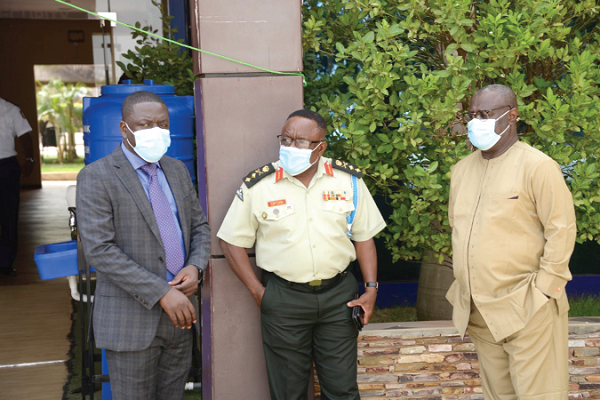
Tackling maritime crime requires deepened intelligence — KAIPTC Commandant
Deepening intelligence, information exchange and coordination between vessels and agencies is the surest way to deal with the surge in maritime crime in the Gulf of Guinea (GoG), the Commandant of the Kofi Annan International Peacekeeping Training Centre (KAIPTC), Major General Francis Ofori, has said.
According to him, although countries along the GoG had, in recent times, stepped up their collaborative efforts in fighting the menace, there was still more to be done to deepen the existing cooperation and information sharing techniques.
In his view, increased intelligence had become necessary, as statistics indicated that pirates in the GoG had enhanced their capabilities and were now launching attacks further from the coast, a development he described as worrying.
Course
Maj. Gen. Ofori made the remark at the opening of the KAIPTC’s third capacity-building course titled: ‘Developing Maritime Security Culture in the Gulf of Guinea’, at Prampram in the Greater Accra Region yesterday.
Organised in collaboration with the Government of Denmark, the eight-day course aims at contributing to improve security in the GoG by enhancing collaboration and cooperation among agencies responsible for maritime security.
A total of 21 people from the Ghana Navy, the Marine Police, private shipping companies, among others, from 10 countries in West and Central Africa, including Ghana, Liberia, Cameroon, Congo Brazzaville, Cote d’Ivoire, Gabon, Nigeria and Sierra Leone, are participating in the course.
Maritime security culture
Maj. Gen. Ofori further stated that having a shared maritime security culture among countries required maritime actors to understand and appreciate the dynamics of maritime insecurity, while working to reduce maritime criminality at sea.
“A week after the attack on the MV Mozart, on 30 January 2021, the MV Rowayton Eagle, which was flying a Marshal Island flag, was attacked about 200nm from shore, and similar incidents further out at sea are not uncommon.
“This is clearly a worrying trend that can only be resolved through increased and shared intelligence, information exchange, coordination among vessels and among reporting and response agencies in the GoG region,” he said.
Maj. Gen Ofori expressed the hope that the training course would contribute to strengthening the capacities of key actors in maritime and forge a joint response to combat maritime insecurity in the GoG.
Threats
The GoG has been identified as one of the most dangerous shipping routes in the world, with the International Maritime Bureau’s (IMB’s) Piracy Reporting Centre (PRC) recording 98 incidents of piracy and armed robbery in the first half of 2020 alone.
According to the IMB, more than 90 per cent of global crew kidnappings reported at sea in 2019 occurred in the GoG, with the region also accounting for all four vessel hijackings that occurred in the same year.
Economic impact
Contributing to the discussion virtually, the Danish Ambassador to Ghana, Mr Tom Nørring, indicated that ensuring enhanced maritime security in the GoG was key to enhancing economic growth for the region.
He said the piracy problem did not only put the lives of national and international seafarers at risk but also presented a serious threat to the economies of the countries along the region.
“I am confident that the knowledge you will acquire through the training will improve the important role you are playing in your various capacities to support maritime security initiatives, both at the regional and the national levels,” he told the participants.
For his part, the Director, Faculty of Academic Affairs & Research at the KAIPTC, Dr Emmanuel Kwesi Aning, gave an assurance that the centre would, in accordance with its mandate, continue to proffer practicable solutions and facilitate effective collaboration among countries to promote peace and security in Africa.
